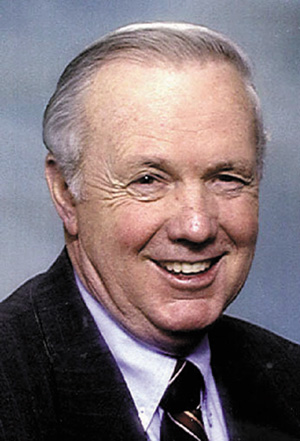No. 656 - IT'S A MATTER OF LIFE AND DEATH
No. 656
Jim Davidson -- NEWSPAPER COLUMN
IT’S A MATTER OF LIFE AND DEATH
Someone has said that death is “A black camel, which kneels at the gates of all.” This is certainly a true statement, because we are all going to die at some point in time. We see some in our society who live to be past 100 years of age and die from natural causes, while others do not live nearly as long. We also see many who tragically take their own life, and for those who are well advanced in years and terminally ill, there may be some peace and consolation for those who are left to mourn. However, this is not the case for those who choose to commit suicide and take their own life while still very young, and at least on the outside, appear to be a picture of good health. While God in His mercy has spared me from having to deal with a tragedy of this magnitude, there are thousands of others who have had to travel this lonely road, and are still traveling.
One such person who deals with the pain of having a child commit suicide is Paul Fleming, who lives in Marion, Illinois. Paul reads my column in the Marion Daily Republican, and over time we have become friends. I did not know about the loss of his son until recently, when I received a letter from him. As a way to help other parents avoid this same tragedy, he and his wife have gotten involved in a tremendous program called “LifeSavers” that was started by Judy Ashby who lives in nearby Carbondale.
To give you some insights, please allow me to share a portion of Paul’s letter. “I am writing to tell you about an amazing program here in Southern Illinois that saves lives. LifeSavers is a program that works with teachers and students at the high school level to train them to watch for suicidal behavior in students and how to get help. If this program had been available at Glen Bard West High School in Glen Ellyn, Ill., in 1987, my son might still be alive today. As it was, he took his own life one month before his 17th birthday. Judy Ashby had a similar experience, which inspired her to develop the LifeSavers Training Program. I’ve had a chance to review her training materials and believe the entire program is very professionally done.”
The LifeSavers program is a peer support, suicide and crisis prevention program for high schools. The initial phase involves a LifeSavers Training Retreat for students, counselors and teachers. One of the goals of the program is to train selected 9th- through 12th-graders to be skilled listeners who can responsibly help other students deal with the crisis of adolescence. Students are not trained to be counselors, but to be LISTENERS.
Many adolescents will turn to one of their peers for help before they ask an adult. By listening, a LifeSaver can help others solve problems before they become life-risking.
Here are some of the many great training skills these LifeSavers receive:
* Group participation skills.
* Breaking communication barriers.
* Education about dysfunctional youth.
* Listening skills.
* Sharing with and feeling concern for others.
* Self-awareness.
* Decision-making skills.
* Coping skills.
* Leadership skills.
* Knowing one’s own limits and when to refer to a professional.
* Positive peer relationships.
* Healthy self-esteem development.
The key to success for this program is that both adolescent LifeSavers trainees and adult LifeSavers Advisers should be emotionally mature, good communicators, and like helping others.
The Pre-Post data from three newly trained high schools proves this program is tremendously effective. Combining their reported numbers demonstrated that: 1.Suicidal incidents decreased by 50 percent. 2. Physical fights between students decreased by 42 percent. 3. No physical attacks by students on staff were reported either in the school year preceding implementation of the LifeSavers program or in the school year subsequent to implementation. 4. Verbal attacks between students decreased by 45 percent. 5. On-campus drug/alcohol related incidents decreased by 60 percent. 6. Counseling contacts increased by 19 percent. 7. Student referrals to counseling increased by 72 percent.
To refine and improve the retreats even more, beginning with the fall 2006 retreats, new research is being conducted by Dr. Rheeda Walker of the Clinical Psychology Department at Southern Illinois University at Carbondale. She will be exploring various components of the program, as well as its impact on students who are trained and its effectiveness and influence within the school community. At present, there are 30 high schools in Illinois and four high schools in Louisiana involved in the program.
If you have an interest in knowing more about LifeSavers, contact LifeSavers Training Corporation, 700 W. Elm St., Carbondale, Ill. 62901, 618-549-5578, lifesaversjudy@verizon.net.
Who knows, it could be a matter of life and death for some precious young person.
---
(EDITOR'S NOTE: Jim Davidson is a public speaker and syndicated columnist. You may contact him at 2 Bentley Drive, Conway, AR 72034. To support literacy, buy his book: “Learning, Earning & Giving Back.”)
